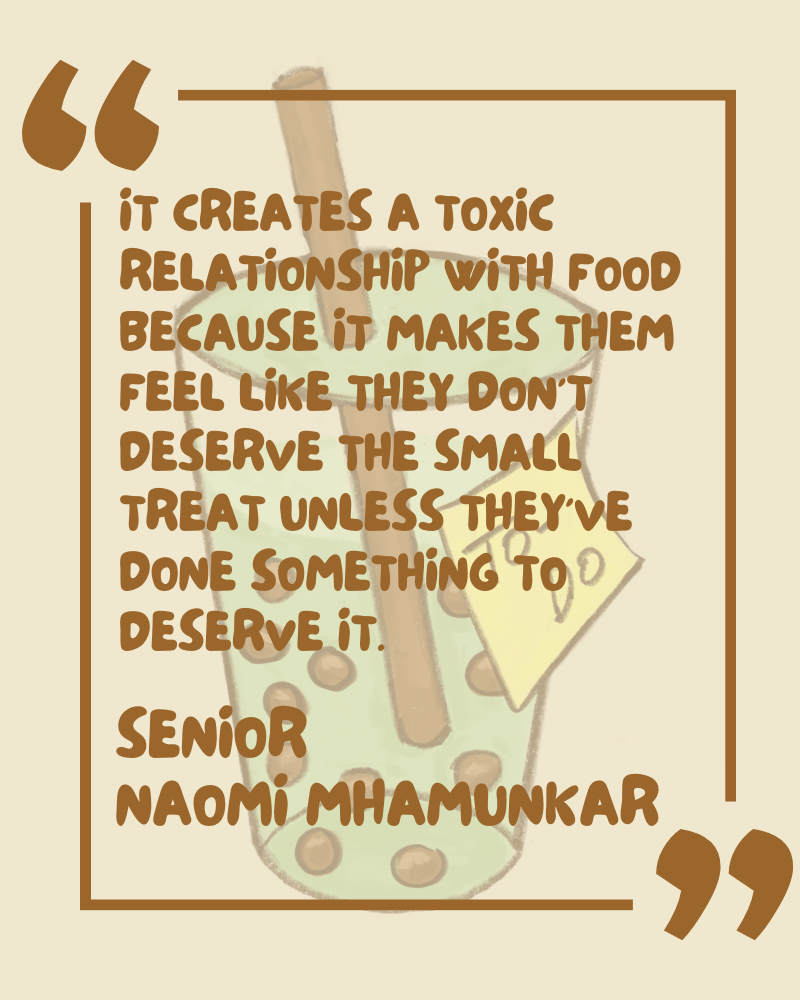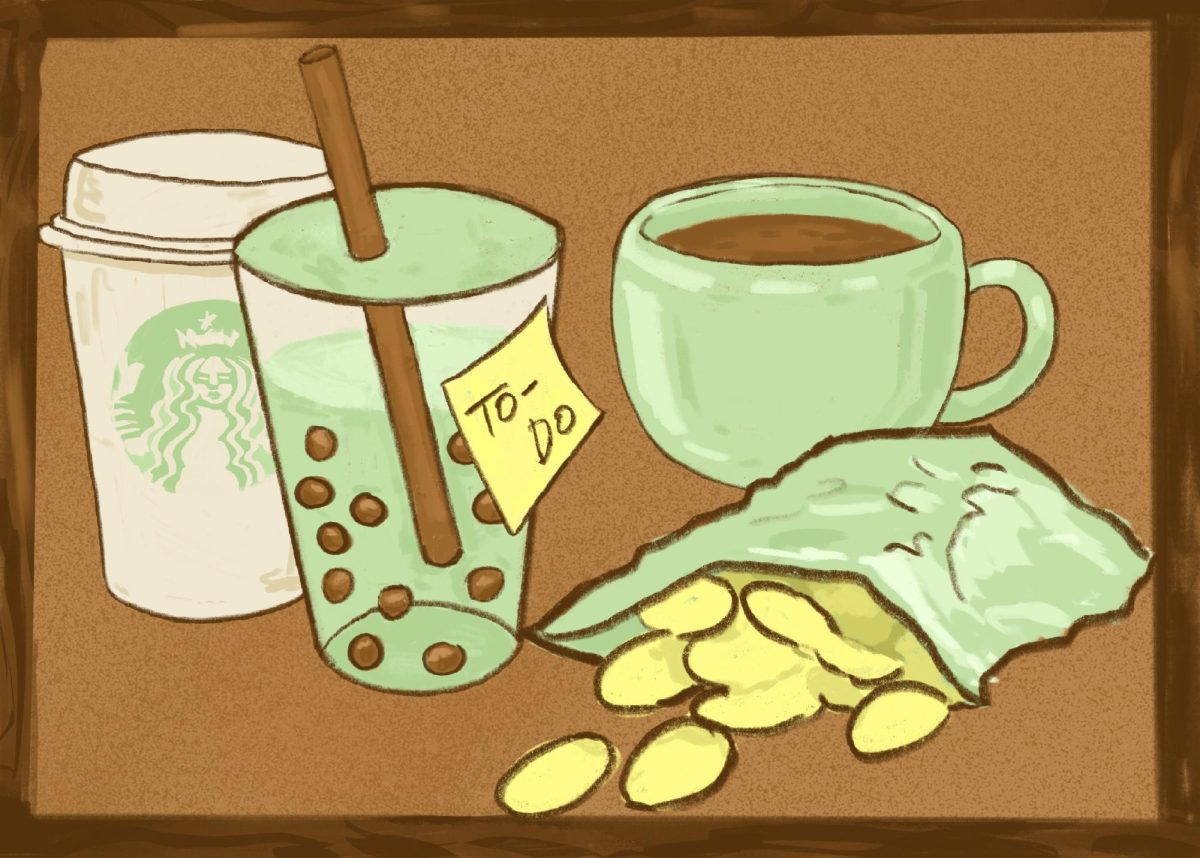During her freshman year, the Biology pig practical hit sophomore Sara Lele hard. She felt drained of energy and unmotivated to study, so she asked her mother to recommend a coffee place that was not Starbucks. They ended up going to Peet’s, a coffee chain that Lele’s mother frequented when she lived in New Jersey. Between the motivation that the coffee provided and the quality time with her mother, going out for coffee together became a routine.
After studying hard or getting a good grade on a test, Lele likes to buy herself coffee from Peet’s, and it leaves her more energetic and ready to work. She says the practice helps her feel rejuvenated, although she’s careful not to overdo it.
“I used to live in Fremont, so when I moved here, it was very tough adjusting because everything is so much harder,” Lele said. “But the small treat helped me get through the day and it has become a tradition.”
The concept of rewarding oneself for hard work is nothing new, but in recent years, the practice has taken on a new title: little treat culture. On Twitter and TikTok, clips of people rewarding themselves with snacks and small purchases have garnered thousands of views. Making transactions as a work incentive has become a practice that many on the internet can relate to.
For MVHS students, these incentives often take the form of snacks. Most Fridays after school, sophomore Evan Hong can be found with his friends at 7-11, where he usually spends $5 to $10 on ice cream, candy or chips to reward himself for getting through a stressful week. He also goes out to lunch with his friends every couple of months to keep himself motivated in the weeks leading up to break. However, he notes that the habit can become counterproductive if not regulated and tries to set boundaries for himself.
While Hong limits his consumption so he can feel more motivated when he does treat himself, Lele sets boundaries for her health. She’s aware of the diminishing returns that come with spoiling herself with rewards and recognizes that it’s only an effective strategy in moderation.
“If I reward myself with coffee too often, I’ll overindulge because I have a habit of stress-eating,” Lele said. “I feel like if I do it as much, it won’t be as special, and it won’t uplift me as much as it usually does.”
According to senior Naomi Mhamunkar, the positive effects of small treat culture can come with potentially damaging ramifications. She noticed that it causes an unhealthy view of food by creating a toxic association between deserving food as a necessity and rewarding oneself with it.

“A lot of people like to reward themselves for studying or cleaning their room or performing a strenuous activity with a small treat,” Mhamunkar said. “And while this is beneficial for a lot of people and it helps them get out of the house and do things that they don’t really want to do, it creates a toxic relationship with food because it makes them feel like they don’t deserve the small treat unless they’ve done something to deserve it.”
Mhamunkar recalls seeing students being rewarded with candy in elementary school for good homework and attendance. But when Halloween rolled around, she found herself wondering if she deserved the candy if she didn’t do anything to earn it. To combat this, Mhamunkar suggests rewarding oneself with something other than food, such as social time or hobby-related items, like art supplies.
“There should be some kind of variety to the rewards,” Mhamunkar said. “If you’re always rewarding every single task you do with food, that’s going to create an unhealthy relationship with it. It’s training yourself like a dog: if you tell your dog to sit, they’ll get a treat. You shouldn’t be treating yourself like an animal like that.”
Hong agrees that non-food purchases can also motivate him after a long week, in addition to being healthier than snacks or soda. Recently, he bought a shirt from TikTok, which he considers a good way to support small businesses at the same time.
Lele finds that motivation can come from spending quality time with loved ones as well. Her family has started completing 1,000-piece puzzles, and she considers the time spent with her sister to be an alternative to small treats. She sees the puzzle time as something to look forward to, the same way she might look forward to a cup of coffee.

While small treats can come in many forms depending on the person, Mhamunkar urges particular caution with the unhealthy mindset that might come with rewarding oneself with snacks. She says that nourishing oneself shouldn’t be inextricably linked to productivity, and seeing labor as a prerequisite for food can have harmful consequences.
“A lot of people need to understand that you do deserve sweet treats outside of productive things,” Mhamunkar said. “If you’re attending a birthday party, just because you didn’t do your homework, it’s not like you don’t deserve a slice of cake. We should be able to understand that even though this isn’t something you ‘deserve’ through work, this is something you deserve as a person.”












